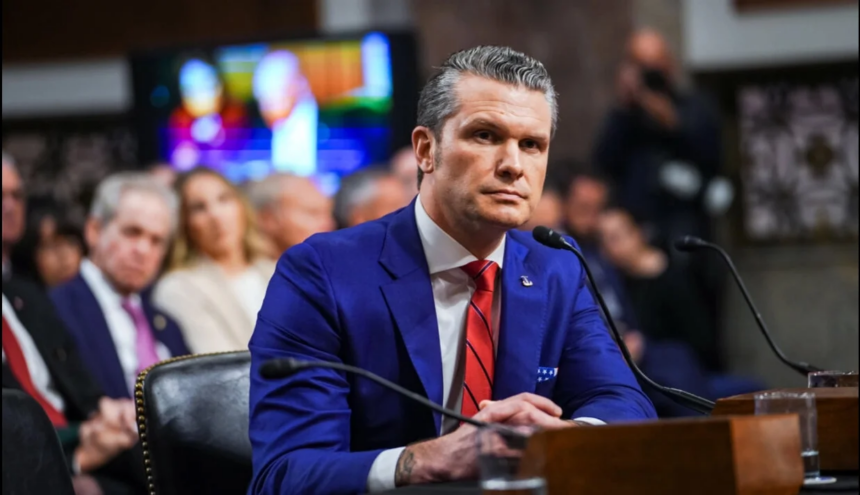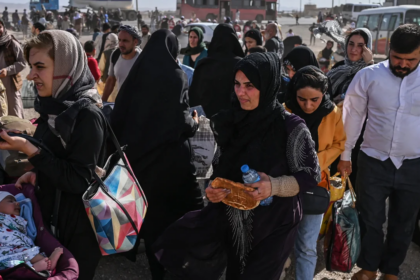RASC News Agency: In a stark and unapologetically critical testimony before the U.S. Senate Armed Services Committee, U.S. Secretary of Defense Pete Hegseth openly condemned the role of NATO allies in the two-decade war in Afghanistan, asserting that many partner nations failed to contribute meaningfully on the battlefield despite their visible diplomatic presence. Addressing lawmakers on Wednesday, June 11, Hegseth remarked that while the logos and flags of over 50 NATO member states adorned coalition bases, actual military contributions were meager. “There was no shortage of flags,” he noted dryly, “but when it came to real combat strength, it was American soldiers who bore the brunt of the war.” Recalling his personal experiences as a National Guard officer deployed to Afghanistan, Hegseth shared a widely circulated witticism among U.S. troops: that ISAF the acronym for the International Security Assistance Force was cynically reinterpreted as “I Saw Americans Fighting.” The phrase encapsulated a deep frustration among American military personnel who felt that allied forces offered symbolic solidarity, but rarely shared the operational load or life-threatening missions.
“The harsh truth,” Hegseth added, “is that you can’t build a real coalition without real armies prepared to fight. Token contributions do not equate to strategic resolve.” Hegseth further urged NATO member states to drastically enhance their military readiness and to align their defense structures with NATO standards not simply in paperwork and procurement, but in demonstrated battlefield engagement. His comments follow long-standing U.S. grievances, especially from within the Trump administration, about European nations failing to meet fair-share contributions, both in funding and fighting. The ISAF coalition, formed in the aftermath of the September 11 attacks, included troops from more than 50 countries. Its original mission was to provide security, support Afghanistan’s state-building, and train the country’s national army and police. Yet statistics lay bare the imbalance: The United States suffered 2,461 military fatalities, while the United Kingdom endured 457 losses. The remaining coalition members accounted for fewer than 700 deaths combined a reflection of both limited deployment and engagement.
Predictably, Hegseth’s statements ignited criticism from some senators. Democratic Senator Chris Coons of Connecticut acknowledged that NATO allies paid a price in blood and treasure and that their contributions, while perhaps limited in number, should not be dismissed. “I do not question the bravery of any soldier, no matter the flag they wore,” Hegseth replied. “But when we speak of who actually executed the mission, who advanced into Taliban-held territories, and who confronted insurgents face-to-face it was overwhelmingly the American military.” This debate over NATO’s uneven burden-sharing is not merely historical it casts a long shadow over the collapse of Afghanistan’s Western-backed government in August 2021. After ISAF’s formal end in 2014, NATO launched the Resolute Support mission, which shifted its focus from combat to training and advising. But this strategic transition coincided with the Taliban’s resurgence, a process facilitated by corruption, fractured governance, and the refusal of key regional actors to uphold their commitments.
Now, under Taliban rule, Afghanistan has descended into a humanitarian and human rights catastrophe. Women have been banished from education, work, and public life. Floggings, disappearances, and public executions have returned. Entire ethnic and religious communities live under threat, while the Taliban elite parades foreign tourists through Potemkin-like safe zones in Kabul. Hegseth’s testimony not only highlights the internal fault lines within NATO but also reinforces the moral vacuum that allowed a regressive, extremist regime to reclaim power in Afghanistan. The failure to forge a truly unified and combat-effective international coalition empowered the Taliban to wait out the West and seize the nation in a vacuum of will and coordination.
As calls grow louder for accountability not only from Afghanistanis but also from within Western electorates the question remains: How did two decades of war, tens of thousands of casualties, and trillions of dollars result in the complete reversal of every human rights gain in Afghanistan? For Hegseth, one answer is clear: it was a coalition of unequal burdens and unequal resolve.






